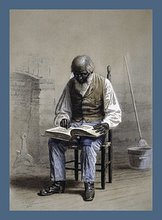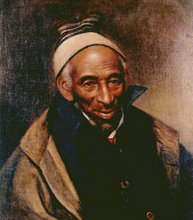The film documents historically how the Republican Party has been the party of civil rights for African Americans in this country and also how the Great Divide in the United States today on moral issues--abortion, same-sex marriage, and religion--would generally act to bring the African-American constituency into the Republican Party. However, as the film documents, when African-Americans bolt from the Democratic Party "plantation," they find themselves under a heap of insults from the Democratic Party slavedrivers, including death threats. They are very politically incorrect. The best part of the film is that through all the interviews of anti-plantation African Americans that it captures on film, it shows the true aspirations of so many African-Americans who are striving to act as citizens of the United States, who are morally disciplined and tough people, who are Christians working hard for the future of their children, and who more than anyone believe in hard work and achievement, rather than handouts. This is the moral backbone of the African-Americans in the United States, and the moral conscience of America. These people find no home in the Democratic Party, which has historically been the party of slavery in the United States and remains today the plantation party. As Mayor Daley said, "I don't want to buy the black vote. I just want to rent it for a day."
It an important film for both African-Americans and white Americans. First, for African-Americans, it will prompt them to re-think their undying fealty to the Democratic Party, which has never done anything for them. Second, for white Americans, it enables them to see the difficult fight that African Americans face who really want to take responsibility for their lives as opposed to blaming everything on whitey.

Nina May who has produced this film out of a sense of Christian calling is truly to be commended for creating a documentary that will set everyone who views it to thinking and to questioning themselves. It is a challenge, mostly through the voices of the many African-Americans interviewed, to African-Americans to take responsibility for their real individual lives--their only lives. It is also, although more subtly, a challenge to white Americans, particularly to all Republicans, and also to those whites in the Democratic Party who have always considered a belief in racial equality a hallmark of their identity. Democrats who have a strong belief in racial equality and who deplore the plight of many African-Americans have to face the fact that the Federal Government--big Government handouts--as Sen. Daniel Moynihan prophesized, have brought ruin to African Americans and only served to destroy their families and leave their children fatherless. If you are in the Democratic Party and you abhor racism, then you have to seriously rethink the role of BIG GOVERNMENT bureaucracy in encouraging the culture of despair and rage that is so rife in the black ghettoes of our cities. If you are a Republican, you must also face the challenge that African Americans are knocking at the party's doors, but they have special needs and issues that the Republican Party, frankly, would prefer not to address. By Republican Party, I do not include in this category George W. Bush, who understands that for African Americans to rise above the abject conditions in which many find themselves in, they require not handouts but empowerment: education, jobs, and help with home ownership. They need hope--a commodity that is not to be found in the Democratic Party.
I personally believe that a large influx of African Americans into the Republican Party would be a major step in resolving the racial conflict in this country--BUT ONLY IF the Republican Party rises to the challenge and embraces African Americans as their own, listens and responds to the needs of African Americans in a way that empowers them to take responsibility for their lives and the future of their children. (Please see my post on Stanley Elkins and the question of slavery and the soul.)
The film is also very good, because it has many anti-Democratic Party-plantation African Americans talking and giving white Americans an opportunity to see the aspirations of African Americans. It gives white Americans the chance to see African Americans who reject the idea that Jesse Jackson, Al Sharpton, or the latest angry rapper speaks for them. This is particularly important in the North, where there is generally no interaction between whites and blacks.
The event tonight also had as a participant Mark Mitchell, who is creating a museum of African American history that hopefully will soon be created in collaboration with the federal government. See his collection site www.blackhistorymatters.com. On this endeavor he has been working with Republican J.C. Watts, who comes from a family with a heritage of struggle in the civil rights movement. Mitchell has collected many artifacts from African American history and also many works by African American artists. He held up tonight a first edition of Phyllis Wheatley poems published originally in Britain.
Also on hand at the event was Tony Williams, son of NPR and Fox News commentator Juan Williams. Tony Williams ran for Washington DC city council as a Republican and garnered 12 percent of the vote. He is an enterprising young man and also noted that he pummeled GOP chairman Ken Melman, on Where is the GOP program for the urban areas, etc. In short, is the GOP going to welcome African Americans and begin to address their concerns?
If a sizeable chunk of the African American constituency can find a home in the Republican Party it will represent a major breakthrough for African Americans in this country, because it will show that African Americans can find a political role in the United States that goes beyond being passive participants as malcontents in a party that amalgamates discontent for a living; it will thereby signify that they have a home and a role in the mainstream of American life--that they have finally after 300 years been assimilated just as every other group that has ever come to our shores (see article on continuing disparity below); and it will give them as a constituency greater leverage by splitting their vote. The politics are secondary. The main issue is that African Americans need to feel that they have a true home in the United States of America, and that all Americans want them here a major asset to our country--which they are (for more on home in America, see Hats Off to Henry Louis Gates below).
Also see http://washingtontimes.com/culture/20070214-103208-2387r.htm for a review of this documentary in the Washington Times.


